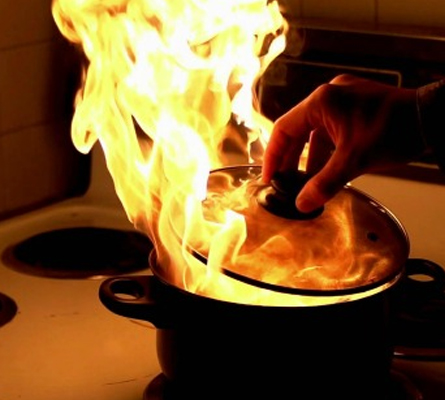
Kitchen Fires
Kitchen fires are a significant cause of house fire damages and injuries to individuals. According to the National Fire Protection Association, the most common reason for fire damage in the home is due to cooking mishaps and 40% of all home fires are caused by cooking accidents. Leaving a stove or oven unattended, keeping paper towels or napkins close to an open flame, and wearing loose clothing while cooking, are all dangerous activities that can lead to injuries and fire damage in the home. In fact, a three-foot parameter around oven and stove tops is recommended to be free of flammable items for optimal safety precaution.
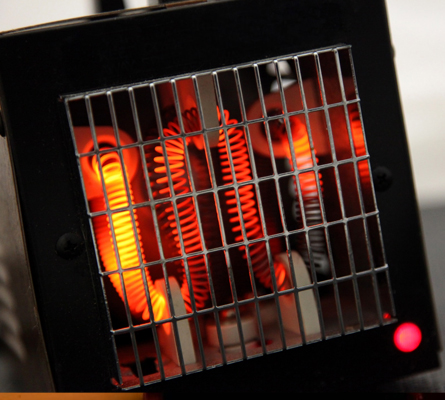
Portable Heating Appliances Fires
As winter temperatures drop, people rely on additional sources of heat, especially in the bedrooms where close proximity to flammable bedding can cause fires. According to the Federal Emergency Management Agency, only 2% of residential heating fires are caused by portable heating units, but account for 25% of residential fire fatalities. The American Red Cross has several recommendations for fire prevention and safely heating the home in wintertime. These include: using combustible items at least three feet from heaters, ovens and fireplaces; and heaters should not be placed on or near carpets, rugs or bedding. Instead, heaters should be placed on firm surfaces such as ceramic tiles. Moreover, portable heaters must never be left unattended. However, there are models on the market that include safety features worth looking into, such as automatic shut off in the event that the heater capsizes.
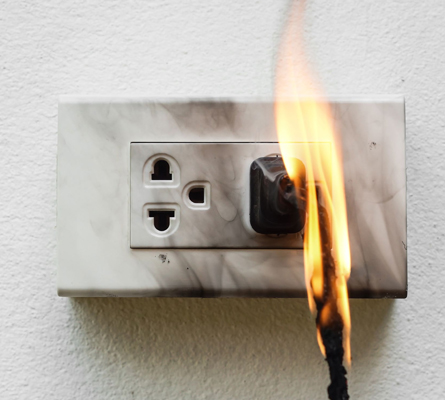
Electrical Malfunction Fires
Electrical system failures are responsible for fires that ultimately claim many lives annually in the United States and around the world. In addition to many unnecessary injuries and deaths, there is also extensive property damage. Most often, fires that are caused by electrical malfunction are due to one or more of the following: faulty or old wiring; incorrectly installed wires; overloaded circuits; overused extension cords; defective appliance cords; or poorly maintained electrical systems. Since common home appliances are usually involved in electrical malfunctions leading to fires, it is best to routinely check the wiring of electric heaters, stoves, ovens, television sets, and radios. Damaged wires should be replaced and circuits and extension cords must not be overloaded. There are more tips of how to prevent fires from electrical failures on the U.S. Fire Administration web site.
Find Your Local “Restoration Renegades” Today
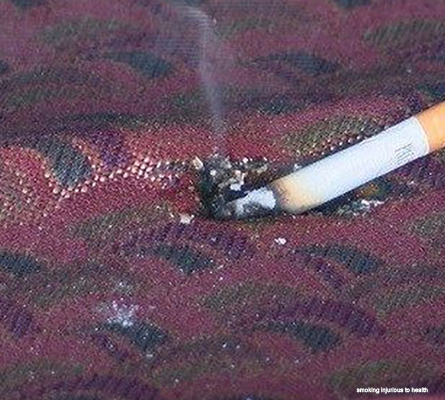
Cigarette Smoking Fires
Cigarette smoking is another leading cause of fires and careless smoking accidents can cause injury and death. To prevent fires due to cigarettes, experts suggest, of course, that smoking outdoors is safer than smoking in the home. A cigarette that has not been extinguished properly can burn through an item of clothing, or furniture, and smolder for hours before bursting into flames. This type of fire can also produce toxic chemical compounds that may contribute to an individual’s unconscious state and incapacitate them to the point of not being able to flee the fire. When putting out cigarette butts, dousing them in water is recommended to make sure that they are out completely. Also, it is best to refrain from drinking alcohol, or taking medications that cause drowsiness, when smoking.
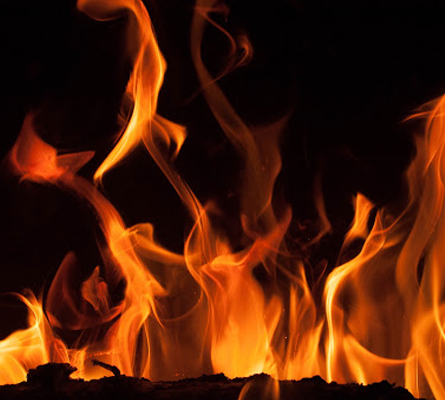
Open Flame Fires
Open flame fires are caused by unattended fireplaces and burning candles. Fireplaces are a major cause of fires that can be prevented with practicing a little caution. The U.S. Consumer Product Safety Commission recommends safety measures, such as inspecting the fireplace to make sure it is in good condition and making sure the area around the hearth is clear of debris and combustible materials. It is also important to keep the flue open and not obstruct the chimney. Installing a metal mesh screen to prevent flying sparks is another good precaution against fires. Since leaving an open flame fire unattended is dangerous, it makes sense to put it out before leaving the house, or prior to retiring for the night. There are sound, common sense safety measures on preventing house fires due to candles as well. These include not leaving burning candles unattended and making sure there are no flammable objects next to an open flame. Also important is to place candleholders on a hard, heat- resistant surface.
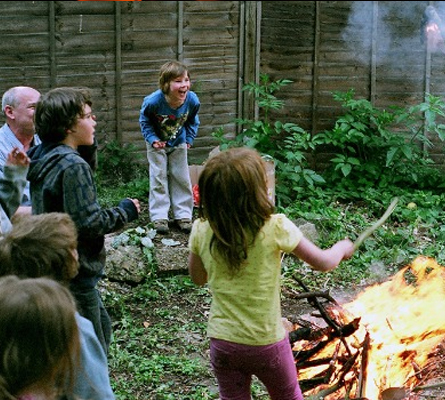
Children Playing with Fire
Children playing with matches, candles and cigarettes, or playing in close proximity to a heat source, can have far reaching detrimental consequences; and that is why fire safety must be explained and taught early on. Children should be monitored around stoves, ovens, fireplaces, burning candles, and portable heating units. Moreover, a three-foot child-free area around hot kitchen appliances and fireplaces should be enforced. Parents and grownups must stress the importance of fire prevention and fire safety in the home. However, children should be aware of what to do in case of a fire, so they are not caught off guard if one breaks out in the home. In fact, practicing fire drills a few times each year teaches and reinforces a life-saving game plan in case of such an emergency.
Fire Preparedness - Fire Safety Tips
Smoke Alarms
Smoke alarms need to be installed on each floor and in every bedroom and sleeping area, as well as in each hallway near sleeping areas. Smoke alarm batteries should be tested monthly and replaced as needed. It is also advisable to replace batteries annually as a precaution, even though they may still be in working condition.
Fire Drills
In addition to talking to children about fire safety and fire prevention, conducting fire drills in the home a couple of times each year can save lives.
- Begin fire drill by setting off smoke alarm
- Work out various scenarios of getting out of the house from bedrooms and other living areas in the home
- Instruct family members to meet outside the house in a predetermined meeting place
- Teach family members that in case of an actual fire, everyone must get out and stay out of the house. One should not go back to retrieve toys, pets or other family members
- Call 911 from a neighbor’s home
Search for, and find, your preferred company now, based on zip code or "select service." Through Restoration Renegades, you will find the right company for you!



